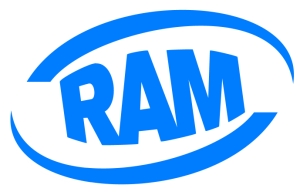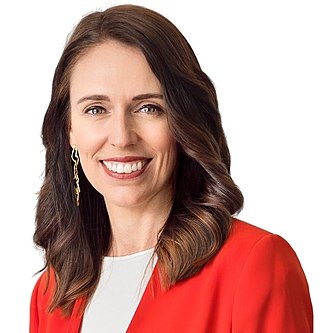Related Research Articles

New Zealand is a representative democracy in which members of the unicameral New Zealand Parliament gain their seats through elections. General elections are usually held every three years; they may be held at an earlier date at the discretion of the prime minister, but that usually only happens in the event of a vote of no confidence or other exceptional circumstances. A by-election is held to fill an electorate vacancy arising during a parliamentary term. Election day is always a Saturday, but advance voting is allowed in the lead-up to it. The most recent general election took place on 14 October 2023.
United Future New Zealand, usually known as United Future, was a centrist political party in New Zealand. The party was in government between 2005 and 2017, first alongside Labour (2005–2008) and then supporting National (2008–2017).

Libertarianz was a political party in New Zealand that advocated libertarianism, favouring self-government and limiting the power of the government over the individual. Ayn Rand's philosophy of Objectivism was a major influence on the party. Its slogan "More Freedom, Less Government" is indicative of the party's basic policy platform. It went into recess and was de-registered by its own request in 29 January 2014.

The Republic of New Zealand Party is an unregistered New Zealand political party which seeks to end monarchy in New Zealand. It was a registered party from 2005 to 2009, contesting two general elections in that time and each time receiving the lowest share of the party vote. After deregistration, some members continued in politics under the party name, though since at least 2011 only one person, Jack Gielen, has contested elections under the name.

The New Zealand parliamentary electoral system has been based on the principle of mixed-member proportional (MMP) since the 1996 election. MMP was introduced following a referendum in 1993. It replaced the first-past-the-post (FPP) system New Zealand had previously used for most of its history. Under the MMP system, New Zealanders have two secret ballot votes to elect members of Parliament (MPs). The first vote is for a candidate from an electorate, a geographic electoral district. The second is the party vote for the political party the voter wants to form the government.

The Residents Action Movement was a political party in New Zealand. RAM described itself as "a mass membership, broad left, grassroots movement of social change". Its national chair was Grant Morgan and its co-leaders were Oliver Woods and Grant Brookes.

Banks Peninsula is a New Zealand parliamentary electorate which initially existed from 1996 to 2008, and was later recreated in 2020 ahead of the 2020 election. It was held by National's David Carter for the initial term, and then by Labour's Ruth Dyson from 1999 to 2008. As of 2023, the seat is currently held by National's Vanessa Weenink.

Cannabis political parties are generally single-issue parties that exist to oppose the laws against cannabis.

Celia Margaret Wade-Brown is a New Zealand politician who has been a Green Party list MP since 19 January 2024. She previously served as the 34th mayor of Wellington, the capital city of New Zealand, from 2010 until 2016.

New Conservatives is a conservative political party in New Zealand. Some opponents and observers have described the party's policies as far-right, though the party now states it has moved to a "more centrist" position under new leadership. It advocates for lower taxation, anti-abortion measures and austerity cuts.

The Internet Party was a registered political party in New Zealand that promoted Internet freedom and privacy. The party was founded in January 2014 with the financial support and promotion of internet entrepreneur Kim Dotcom, and was first led by former Alliance MP Laila Harré, then by citizen journalist Suzie Dawson.
The New Zealand Outdoors & Freedom Party, formerly the New Zealand Outdoors Party, is a registered political party in New Zealand. It is part of the Freedoms NZ umbrella movement. The party is co-led by Sue Grey and Donna Pokere-Phillips.

The New Zealand People's Party was a political party in New Zealand. The party was established in 2015 and had a particular focus on the rights of immigrants. It operated as an independent party for a 2016 by-election and the 2017 general election, and as a component party of Advance New Zealand for the 2020 election. The party's leader, as of September 2020, was Anil Sharma.

The 2020 New Zealand general election was held on Saturday 17 October 2020 to determine the composition of the 53rd New Zealand Parliament. Voters elected 120 members to the House of Representatives, 72 from single-member electorates and 48 from closed party lists. Two referendums, one on the personal use of cannabis and one on euthanasia, were also held on the same day. Official results of the election and referendums were released on 6 November.

Vision NZ is a nationalist political party in New Zealand led by Hannah Tamaki, the co-leader of the fundamentalist Christian movement Destiny Church. Its policies have included opposition to abortion, homosexuality, immigration, and the construction of new mosques. It has supported creating a Māori-owned bank and Tūhoe ownership of Te Urewera, and has called for government funding for Destiny Church programmes.
The 2020 New Zealand general election held on Saturday, 17 October 2020 determined the membership of the 53rd New Zealand Parliament. It was previously scheduled for 19 September, before being delayed due to the COVID-19 pandemic. Parliament has 120 seats, and 72 will be filled by electorate MPs, with the remaining 48 from ranked party lists. Parties were required to submit their party lists to the Electoral Commission by 17 September and the lists were publicly released on 19 September, though some parties published their lists earlier than that. This page lists candidates by party, including their ranking on a list.

The Advance New Zealand Party was a short-lived political party in New Zealand from 2020 to 2021. The idea was first unveiled in a newsletter from founder Jami-Lee Ross in April 2020. Ross has claimed that the party was a centrist and anti-corruption movement designed to appeal to voters "in the middle"; however, their main policies represent the political fringe rather than centre.
Heartland New Zealand is a New Zealand political party founded in 2020. The party is rural-based, and opposed the New Zealand Emissions Trading Scheme, the Paris Agreement, and attempts to limit the environmental impacts of agriculture.

The New Zealand Public Party was a short-lived political party in New Zealand led by Billy Te Kahika. It was founded in June 2020, and two months later became a component party of registered party Advance New Zealand in order to contest the 2020 election. Advance received only 1.0% of the party vote and neither Advance nor Public won any electorate seats, so the Public Party did not win any representation in Parliament. The Public Party split from Advance shortly after the election acrimoniously, and Public's party secretary and director both resigned in January 2021.
References
- 1 2 Sheppard, Simon (26 December 1997). "United Party Awaiting Opportunities". Otago Daily Times .
- 1 2 Edwards, Bryce (2002). Political Parties in New Zealand: A Study of Ideological and Organisational Transformation. University of Canterbury.
- ↑ "New Zealand Gazette". Archived from the original on 19 July 2020. Retrieved 19 July 2020.
- ↑ "Party Lists of Unsuccessful Registered Parties" (PDF). Electoral Commission. Archived (PDF) from the original on 23 January 2020. Retrieved 19 July 2020.
- 1 2 "Summary of overall results (.pdf 105kb)" (PDF). Electoral Commission. Archived (PDF) from the original on 23 January 2020. Retrieved 19 July 2020.
- ↑ Orsman, Bernard (16 July 2002). "The man for whom the worm turned up trumps". New Zealand Herald. Archived from the original on 19 July 2020. Retrieved 19 July 2020.
- ↑ "United to absorb Advance NZ". The Dominion . 4 September 1997. p. 2.